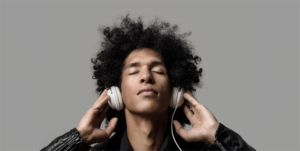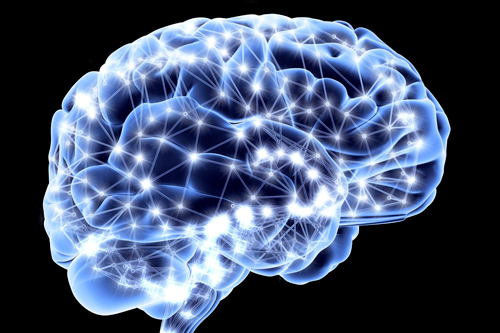When you choose a channel on the radio, what station do you pick? Sad lyrics, beautiful ballads and swelling choruses, or grinding guitars and driving beats? Adele or AC/DC? Kenny G or Max Roach? According to a 2015 study, your choices may indicate how you think and process information.
The study’s primary authors, David Greenberg and Simon Baron-Cohen, found that musical preferences correlate to people’s tendency towards empathy – explaining it as “the ability to identify, predict, and respond appropriately to the mental states of others” – or their tendency to focus on and analyze systems, called “systemizing.”
The study was designed around the “Empathy-Systemizing” theory, originally proposed and studied by neuroscientist and autism expert Baron-Cohen, who believes that human brains can be categorized on a spectrum between those two poles. The 2015 study analyzed responses to tests designed to reveal these preferences, or “cognitive styles,” and then mapped that data against people’s preferences for various musical forms.
In broad strokes, the study suggests that those who test high for empathy prefer soft rock, contemporary R&B and that glorious category known as “adult contemporary.” If you have ever been on a road trip and found yourself singing along to Air Supply, with tears in your eyes, you may also score high on a psychological test for empathy.
However, if you consistently turn the dial towards heavy metal, punk and hard rock, this study would suggest that you are probably a systemizer, and therefore might prefer focusing on analyzing complex natural and mechanical systems.
Not so fast: what does the study mean for me?
 When I turn on the family SUV, and punk rock is blaring on the car stereo, I assume my husband was the last one to drive. If I get country-western love ballads, my younger daughter definitely chose the music. According to this study, does that also reveal my husband is more prone to analyzing systems than he is to listen closely as I discuss my feelings? Or that my daughter will someday make a terrific therapist?
When I turn on the family SUV, and punk rock is blaring on the car stereo, I assume my husband was the last one to drive. If I get country-western love ballads, my younger daughter definitely chose the music. According to this study, does that also reveal my husband is more prone to analyzing systems than he is to listen closely as I discuss my feelings? Or that my daughter will someday make a terrific therapist?
Well, maybe. And maybe not. What the study reveals is that those who score very high on empathy are much more likely to enjoy gentle music, and those who score high on systematization are the biggest fans of extreme, intense and percussive genres.
I spoke with Dr Andrew Vickers, a biostatistician at Memorial Sloan-Kettering and an enthusiastic amateur musician. Dr Vickers noted that a study like this one can test statistical hypotheses – that cognitive styles and musical taste are related.
But Dr Vickers also points out that both journalists and scientists must reflect on the strength of statistical associations like the ones studied here. “It doesn’t surprise me that people with different personalities tend towards different kinds of music. However, that isn’t likely to be a strong effect for everyone: if you tried to guess someone’s personality based on their music preferences, you wouldn’t be right much more often than you’d be wrong.”
This is because many of us are fascinated both by human emotions and natural and mechanical systems. There aren’t two kinds of people any more than there are two kinds of music. In the course of any given week, I’m likely to bop around to the Ramones in my kitchen, rap along to hip-hop on my commute to work, or write a sad ballad to play and sing at the piano.
To put it another way: if you are not an extreme empathizer or an extreme systematizer, this study may not teach you anything about yourself you didn’t already know.
Love Ballads and the Systematizers

Still, the results of the study may eventually prove useful to those who study individuals who struggle with empathy or struggle to understand systems.
Baron-Cohen’s “Extreme Male Brain” theory of autism holds that individuals diagnosed with autism have difficulty understanding other people’s subjectivity, and often have a heightened ability to perceive systems. In a second article discussing the findings of the study, Greenberg, Baron-Cohen and a third scientist, Peter Rentfrow, theorize that music may not just be predictive of cognitive styles such as autism, but also useful for music therapists and clinicians in their work.
So might it be the case that certain music actually improves one’s ability to understand the emotions of others? In a 2013 study, the psychologists David Kidd and Emanuele Castano demonstrated that reading literary fiction actually improved people’s “Theory of Mind,” and ability to understand other people’s emotions. Perhaps over time therapists will discover that certain forms and styles of music will have similar effects.



